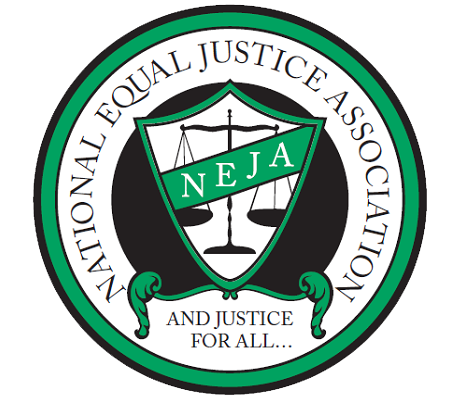NEJA's Mission
National Equal Justice Association (NEJA) is committed to providing support for efforts directed at issues of equal justice through assisting local organizations and groupings. NEJA is premised on the need for an organization of national scope that can expand the effectiveness and implications of positive local efforts to achieve equal justice.
NEJA operates from the core principle that in order for immediate change to transform into a long lasting characteristic of our society, those directly affected by the injustices must take a lead role in defining the solutions and effecting that change, and that by bringing material aid and advisement to such groupings, NEJA can help shape the future course of history in keeping with fundamental principles of the U.S. Constitution.
NEJA believes that the fight for equal justice must focus on those most in need, those most isolated, exploited, denied and discriminated against. NEJA recognizes that many of those bravely mounting demands for change are low-income minority workers and female single heads of households, whose efforts at organization toward collective advance are often met with official or behind-the-scenes backlash from predictable systemic resistance.
NEJA has seen that those who have demonstrated the ability to effect the longest-lasting impact in the cause for equal justice have taken into consideration many facets of the problems — whether economic, legal, political or a combination of social barriers — before arriving at their strategy for change, and NEJA encourages such a comprehensive approach to analysis as a basis for a plan of action.
NEJA seeks to break the cycle of splintered, isolated attempts striving for equal justice that are needlessly “reinventing the wheel” for want of knowledge of like organizations, campaigns or movements, or of potential resources promoting legal recourse.
NEJA has often found itself to be the organization of last resort for those most in need, particularly for organizations with constituents of low-income status and/or those beleaguered by discrimination and unequal treatment in vital sectors, such as at the workplace, in the courts or in housing.

